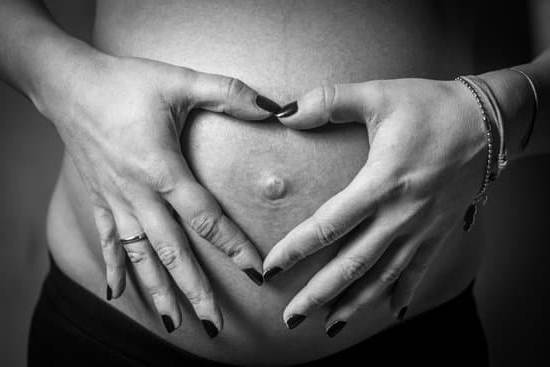Ectopic pregnancy symptoms are important to understand as this condition can be life-threatening if not treated promptly. An ectopic pregnancy occurs when a fertilized egg implants and grows outside the main cavity of the uterus. This can result in serious complications for the pregnant person, making it crucial to recognize the signs and seek medical help.
Common risk factors for ectopic pregnancy include a history of pelvic inflammatory disease, previous ectopic pregnancy, and certain fertility treatments. Additionally, women who smoke, are over 35 years old, or have had tubal surgery are at an increased risk. Understanding these risk factors can help individuals determine their likelihood of experiencing an ectopic pregnancy and seek appropriate care.
Early warning signs and symptoms of ectopic pregnancy may include pelvic pain, vaginal bleeding, shoulder pain, dizziness or fainting, and rectal pressure. Recognizing these symptoms is vital for early detection and treatment of ectopic pregnancy to prevent serious complications. It’s important for individuals to understand these signs so they can seek medical help as soon as possible.
Common Risk Factors for Ectopic Pregnancy
Ectopic Pregnancy occurs when a fertilized egg implants and grows outside the main cavity of the uterus. This can happen in various locations, but commonly occurs in the fallopian tubes, which is why it is often referred to as a “tubal pregnancy.” It is important to understand the common risk factors that may increase a woman’s likelihood of experiencing an ectopic pregnancy.
Some common risk factors for ectopic pregnancy include:
- Previous history of ectopic pregnancy
- Pelvic inflammatory disease (PID)
- Endometriosis
- Fallopian tube abnormalities or scarring
- Previous tubal surgery
- Intrauterine device (IUD) use
- Smoking
It’s important to note that having one or more of these risk factors does not guarantee that a woman will experience an ectopic pregnancy, but being aware of these risk factors can help women and their healthcare providers be vigilant for potential symptoms and seek early medical intervention if necessary. Understanding these risk factors can also inform future family planning decisions and help women make informed choices about their reproductive health.
Additionally, it’s important for women to have regular check-ups with their healthcare provider, especially if they have one or more of these risk factors. Early detection of ectopic pregnancy symptoms can be crucial in preventing complications and addressing the issue promptly. If a woman experiences any symptoms associated with an ectopic pregnancy, it’s important to seek medical attention immediately.
Early Warning Signs and Symptoms of Ectopic Pregnancy
Ectopic pregnancy occurs when a fertilized egg implants and begins to develop outside of the uterus, most commonly in the fallopian tube. This can be a life-threatening condition for the pregnant person, as the ectopic pregnancy cannot survive and may cause severe complications if not detected and treated promptly. Understanding the early warning signs and symptoms of ectopic pregnancy is crucial for seeking medical help as soon as possible.
What Are the Early Warning Signs?
One of the most common symptoms of ectopic pregnancy is abdominal or pelvic pain. This pain may be sharp and stabbing, and it can occur on one side of the abdomen. In some cases, the pain may also radiate to the shoulder or neck. Additionally, vaginal bleeding or spotting and gastrointestinal symptoms such as nausea and vomiting may also be present in a woman with an ectopic pregnancy.
Recognizing the Symptoms
It is important for individuals who suspect they might have an ectopic pregnancy to pay attention to their bodies and recognize any unusual symptoms. Other potential indicators of ectopic pregnancy include dizziness, lightheadedness, fainting, or low blood pressure. Some women may also experience rectal pressure or discomfort during bowel movements.
Importance of Seeking Medical Help
If anyone experiences any of these symptoms, especially if they are pregnant or suspect they might be pregnant, it is crucial to seek medical help immediately. Ectopic pregnancies can rupture and cause internal bleeding, leading to a life-threatening emergency situation. Prompt recognition and treatment significantly improve outcomes for individuals with ectopic pregnancies. Therefore, being aware of these early warning signs can make a significant difference in preventing serious complications associated with this condition.
Severe Symptoms of Ectopic Pregnancy and When to Seek Medical Help
In some cases, ectopic pregnancy can lead to severe symptoms that require immediate medical attention. One of the most serious symptoms is heavy vaginal bleeding, which can indicate internal bleeding. Other alarming signs include sharp or stabbing abdominal pain, shoulder pain, weakness, dizziness, fainting, and rectal pressure.
These symptoms may be a sign that the fallopian tube has ruptured or that there is significant internal bleeding. It is crucial to seek medical help immediately if you experience any of these severe symptoms.
When it comes to ectopic pregnancy symptoms, it is important to be vigilant and not dismiss any unusual signs. Even if you are unsure about whether your symptoms are related to an ectopic pregnancy, it’s always best to err on the side of caution and seek medical advice. Ignoring or downplaying the severity of these symptoms can result in life-threatening complications.
If you suspect you may have an ectopic pregnancy or if you are experiencing any severe symptoms such as heavy vaginal bleeding and intense abdominal pain, do not hesitate to go directly to the emergency room or call for emergency medical assistance. Time is of the essence when dealing with an ectopic pregnancy, so seeking prompt medical care can make a significant difference in your outcome.
| Severe Symptoms | When to Seek Medical Help |
|---|---|
| Heavy vaginal bleeding | Immediate medical attention required as it could indicate internal bleeding |
| Sharp or stabbing abdominal pain | Seek immediate medical help as it could signify a ruptured fallopian tube |
| Weakness, dizziness and fainting | Should prompt a visit to the emergency room for evaluation |
How Ectopic Pregnancy Is Diagnosed
When a woman experiences ectopic pregnancy symptoms, it is crucial to seek immediate medical attention as this condition can be life-threatening if left untreated. Some of the common signs and symptoms of an ectopic pregnancy include abdominal or pelvic pain, vaginal bleeding, dizziness, and shoulder pain. It is important to understand how ectopic pregnancy is diagnosed in order to receive proper medical care.
Tests and procedures are essential in diagnosing an ectopic pregnancy. The first step in the diagnosis process typically involves a physical examination and a review of the patient’s symptoms and medical history. Additionally, healthcare providers may perform a pelvic exam to check for any unusual tenderness or pain in the abdomen or pelvis.
One of the most common tests used to diagnose an ectopic pregnancy is transvaginal ultrasound. This test allows healthcare providers to visualize the reproductive organs and determine if the pregnancy is developing outside the uterus. Blood tests may also be conducted to measure levels of human chorionic gonadotropin (hCG), a hormone produced during pregnancy. In cases of an ectopic pregnancy, hCG levels may be lower than expected for a normal, intrauterine pregnancy.
It is important for individuals who are experiencing symptoms of an ectopic pregnancy to seek prompt medical care. Early diagnosis and treatment are crucial in preventing complications and ensuring the health and safety of the patient. If left untreated, an ectopic pregnancy can lead to serious complications such as internal bleeding or rupture of the fallopian tube. Therefore, seeking medical attention at the earliest signs of ectopic pregnancy symptoms is vital for positive outcomes.
| Tests and Procedures | Importance |
|---|---|
| Physical examination | Identify symptoms and review medical history |
| Transvaginal ultrasound | Determine location of pregnancy |
| Blood tests for hCG levels | Evaluate hormone levels indicative of ectopic pregnancy |
Treatment Options for Ectopic Pregnancy
When it comes to treating ectopic pregnancy, there are two main options: medication and surgery. The choice between the two largely depends on the individual case, the gestational age of the pregnancy, and the overall health of the woman.
Medication Treatment
One option for treating ectopic pregnancy is through medication. The most common medication used for this purpose is called methotrexate. This medication works by stopping the growth of the embryo and causing it to be reabsorbed by the body.
It is typically administered through an injection and may require multiple doses for it to be effective. Methotrexate treatment is generally only recommended for women whose ectopic pregnancies are diagnosed early, and where there are no signs of rupture or heavy bleeding.
Surgical Treatment
In cases where a woman’s health is at risk due to severe symptoms or if the ectopic pregnancy has already ruptured, surgery may be necessary. The most common surgical procedure for treating ectopic pregnancy is called laparoscopic surgery, also known as minimally invasive surgery.
During this procedure, a small incision is made in the abdomen, and a thin tube with a camera is inserted to locate and remove the ectopic pregnancy from the fallopian tube. In some cases where extensive damage has occurred or if there are other complications present, open abdominal surgery may be necessary.
It’s important to note that both medication and surgical treatments have their own risks and potential side effects. Women should discuss these options with their healthcare providers thoroughly before making a decision. Additionally, regardless of which treatment method is chosen, close monitoring and follow-up care are essential to ensure that any remaining tissue from the ectopic pregnancy resolves completely.
Recovery and Follow-Up Care After Ectopic Pregnancy Treatment
After undergoing treatment for an ectopic pregnancy, it is important for women to take care of their physical and emotional well-being. Here are some important steps to consider during the recovery process and follow-up care:
- Follow all post-treatment guidelines: Whether the treatment involved medication or surgery, it is crucial to follow all the instructions provided by the healthcare provider. This may include taking prescribed medications, getting plenty of rest, and avoiding certain activities for a specified period of time.
- Attend follow-up appointments: After receiving treatment for an ectopic pregnancy, it is vital to attend all scheduled follow-up appointments with a healthcare provider. During these visits, the doctor will monitor progress, address any concerns or complications that may arise, and provide guidance on future family planning.
- Monitor for signs of complications: Even after successful treatment, there is a risk of complications such as infection or internal bleeding. It is important for women to be aware of potential warning signs such as persistent abdominal pain, abnormal vaginal bleeding, fever, or dizziness and seek medical attention promptly if any of these symptoms occur.
Recovering from an ectopic pregnancy can be emotionally challenging as well. Many women and their partners may experience feelings of grief, sadness, or anxiety. It is essential to seek support from loved ones, counseling services, or support groups specialized in pregnancy loss in order to cope with the emotional impact of this difficult experience.
Emotional and Psychological Impact of Ectopic Pregnancy on Women and Their Partners
In conclusion, the emotional and psychological impact of ectopic pregnancy can be profound for women and their partners. Dealing with the physical symptoms and potential complications of ectopic pregnancy can also take a toll on mental well-being. It is important for individuals affected by ectopic pregnancy to seek support and understanding from loved ones, as well as professional counseling if needed.
The fear, sadness, and grief that often accompany the experience of ectopic pregnancy can be overwhelming. Women may struggle with feelings of guilt or inadequacy, while their partners may feel helpless or confused about how best to offer support. It is crucial for both partners to communicate openly about their emotions and seek mutual understanding as they navigate the challenges posed by ectopic pregnancy.
Counseling, support groups, and therapy can all be valuable resources for individuals coping with the emotional aftermath of ectopic pregnancy. Seeking professional help can provide a safe space to process complex emotions and develop coping strategies.
Ultimately, it is important to remember that healing from the emotional impact of ectopic pregnancy takes time, but with patience and support, individuals can find solace and move forward towards recovery. If you or someone you know is experiencing any ectopic pregnancy symptoms or struggling emotionally after an ectopic pregnancy, it’s essential to seek medical attention promptly.
Frequently Asked Questions
What Are 3 Signs of an Ectopic Pregnancy?
Three signs of an ectopic pregnancy include abdominal or pelvic pain, vaginal bleeding, and shoulder pain. These symptoms may indicate a medical emergency and should be addressed promptly.
How Long Can You Carry an Ectopic Pregnancy?
An ectopic pregnancy cannot develop into a full-term pregnancy and poses serious risks to the woman’s health. If left untreated, it can lead to life-threatening complications such as ruptured fallopian tubes, so it’s crucial to seek medical attention immediately.
Can a Woman Still Have a Baby With an Ectopic Pregnancy?
Unfortunately, a baby cannot survive in an ectopic pregnancy, and the pregnancy cannot be carried to term. However, with early detection and appropriate medical intervention, a woman can still have a healthy pregnancy in the future. It’s essential to discuss fertility options with a healthcare provider after experiencing an ectopic pregnancy.

Welcome to my fertility blog. This is a space where I will be sharing my experiences as I navigate through the world of fertility treatments, as well as provide information and resources about fertility and pregnancy.





